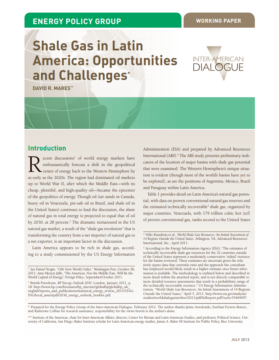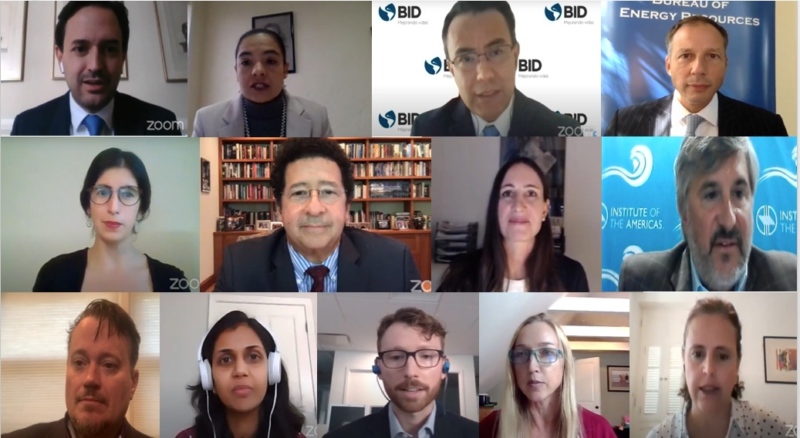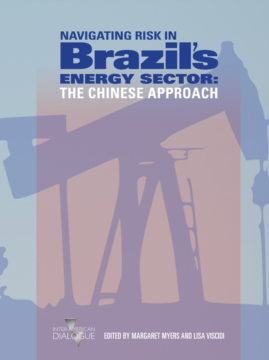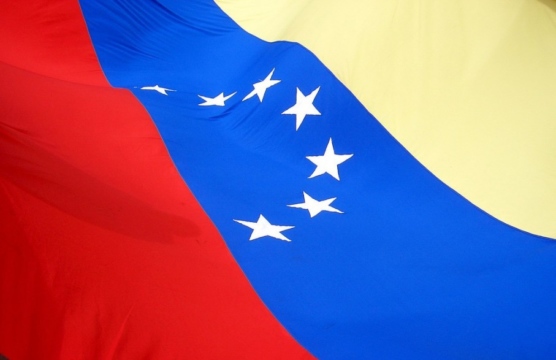
Shale Gas in Latin America
Unless resource nationalism can be made compatible with providing incentives for significant foreign participation, it may be too early to start trumpeting a bonanza for Latin America.
2020 has been a tumultuous year for Latin America’s energy sector. The global pandemic has led to a sharp decline in oil demand and prices even as clean energy investments accelerate. With presidential elections around the corner in the United States, the future of US energy diplomacy in the region is unclear. Industry executives, government officials, and corporate representatives convened to discuss the challenges and opportunities in today’s energy markets during the virtual Fourth Annual Energy Conference.
In the first panel, speakers discussed the financial challenges facing national oil companies (NOCs). Mexico’s Pemex has been laboring under massive amounts of debt and will likely remain on shaky financial ground for the foreseeable future. In the case of Brazil, a natural gas market reform should create a more competitive market which will help state-owned Petrobras. Overall, panelists agreed that the recovery of the region will be uneven, with some NOCs faring better than others.
Diego Mesa, Minister of Mines and Energy of Colombia, then gave keynote remarks, highlighting the importance of the energy sector in powering a global economic recovery. He noted that Colombia's first unconventional oil and gas fracking pilot wells are expected to see drilling activity at the end of 2021 and spoke about the country’s role in promoting the energy transition. He closed his presentation by detailing the country’s royalties reform, stating that “the communities are really happy…they regained the territory that was lost with the reform in 2011 and 2012.”
The second panel examined energy storage and the future of Latin American power grids. In the region, energy storage offers opportunities to improve reliable access to energy and replace fossil fuels with renewable energy. Panelists noted Latin America has abundant potential for non-conventional renewable energy, which, together with energy storage, will increase the share of renewable energy in the matrix.
The third panel examined the upcoming US presidential election and its implications for US-Latin America energy ties. According to the speakers, a Joe Biden presidency would likely represent more of a break with current policies, and Biden’s approach to the region would include more dialogue about climate change and accelerating the energy transition. In the case of a second term for President Donald Trump, policies with Latin America are expected to remain more stable, focused on supporting access to private investments for energy infrastructure.
The final keynote session was delivered by Francis R. Fannon, Assistant Secretary of the Bureau of Energy Resources at the US Department of State, who discussed his recent visit to the region. He remarked the trip “was historic in so many ways, to be with true partners in the region, who share the same kind of democratic values that we do.” Fannon also discussed Venezuela’s humanitarian crisis and the role of the US government in calling for the restoration of democracy. More broadly, he reflected on the US strategy for engagement and energy development in the region, which includes financial and technical assistance, sharing best practices, and catalyzing private sector development.
While the oil and gas price collapse and economic decline due to the global coronavirus pandemic are generating uncertainty in the region, panelists maintain a positive outlook for regional cooperation, private investment, and opportunities to boost economic recovery.
Read coverage of the event in S&P Global Platts, BNamericas, and Natural Gas Intelligence.
Minister Diego Mesa - PP Slides - Keynote Session
Alejandra León - PP Slides - Panel One
Sylvie D'Apote - PP Slides - Panel One
Mitalee Gupta - PP Slides - Panel Two
Ariel Yépez - PP Slides - Panel Two
Rebecca Boll - PP Slides - Panel Two
Unless resource nationalism can be made compatible with providing incentives for significant foreign participation, it may be too early to start trumpeting a bonanza for Latin America.
Brazil’s oil and gas and electricity sectors are an important destination for Chinese direct investment.
With crude oil prices down 25 percent since June and holding at roughly $86 a barrel on Tuesday, Venezuela is getting nervous.
 María José Rocha / Inter-American Dialogue
María José Rocha / Inter-American Dialogue

